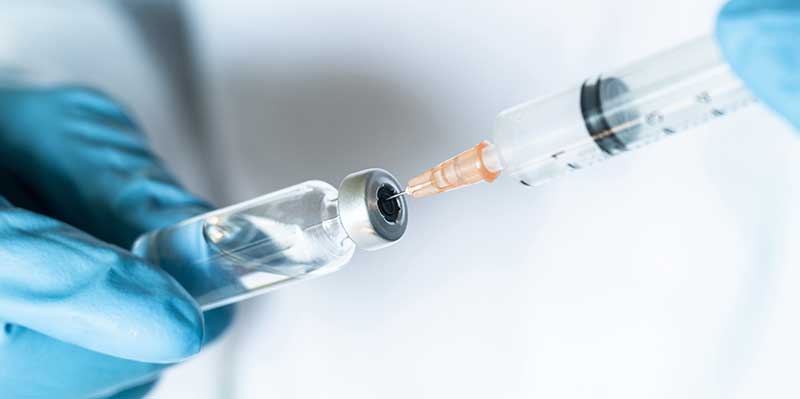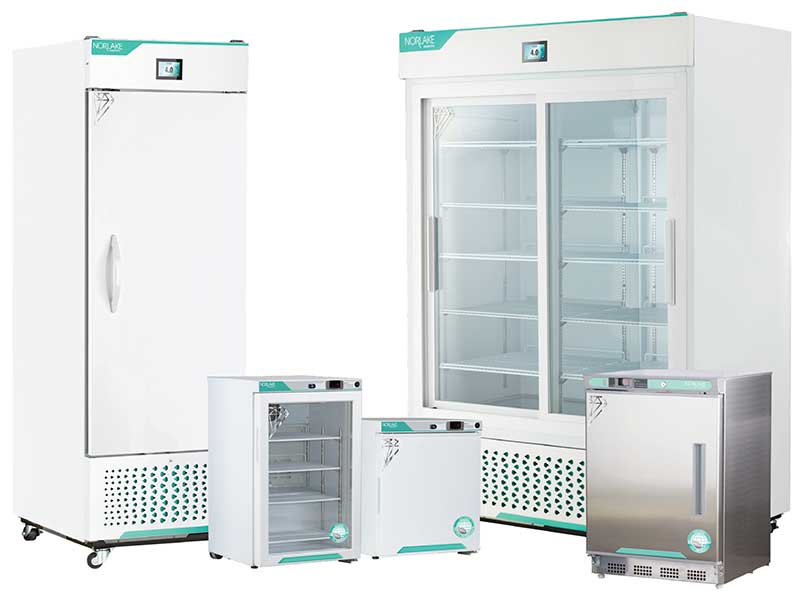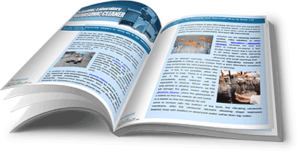
CDC Refrigeration Guidelines for Submitting COVID-19 Specimens for Testing
While the search for a Coronavirus vaccine proceeds at full throttle a crucial issue is proper collection, labeling, storage and shipping of COVID-19 specimens to CDC laboratories for testing. Among procedures spelled out in the CDC’s Interim Guidelines is that coronavirus specimen shipments must be stored at 2-8⁰C and shipped overnight on icepack for testing within 72 hours. If a delay in shipping is expected, specimens must be stored at -70⁰C or lower. These agree with a companion guideline for post-mortem testing.
Temperature Guidelines for COVID-19 Test Kits
Because there are so many sites collecting specimens there is a national shortage of reagents for the tests. Test kits are available for real-time PCR and in vitro diagnostic procedures. One manufacturer specifies storage temperatures from -10⁰ to -30⁰C down to ≤-70⁰C depending on the components of the kits.
To meet these storage requirements you should be familiar with
- Scientific Refrigerators
- Scientific Freezers
- Ultra-Low Temperature Freezers
This post describes scientific refrigerators, freezers and ultra-low temperature freezers available to provide recommended storage temperatures. Recommendations can apply for proper storage when Coronavirus vaccines become available.
How to Specify Refrigerators and Freezers for COVID-19 Specimens
Scientific refrigerators. freezers and ultra-low temperature freezers are called for when your facility needs extra storage capacity for COVID-19 specimens. Suggestions and relevant procedures found in the CDC’s Vaccine Storage and Handling Toolkit provide excellent guidelines on what to specify in a refrigeration unit.
Need help? We’re here for you
during these changing times. Call us.
(973) 913-9734
The overriding guideline is that the refrigeration system does not allow temperature excursions above or below the recommended storage temperatures. This is because over the years substantial financial losses have occurred when refrigerators used to store vaccines fail to maintain vaccines at recommended temperatures.
Temperature excursions cause vaccines to lose their potency. In addition to the financial loss there is the inconvenience of calling patients back to be re-vaccinated with uncompromised vaccines.
Similar losses from improper storage can be expected when a Coronavirus vaccine becomes available.
A good practice is to set your refrigerator or freezer thermostats at the factory-set or midpoint temperature, which will decrease the likelihood of temperature excursions.
High on the list of CDC recommendations is the use of stand-alone refrigerators and freezers, and it is likely that this will apply as well when storing a Covid-19 vaccine . That’s because they maintain the required temperature better than combination refrigerator/freezers. The exception is that combination refrigerators and freezers are acceptable where each compartment has its own compressor, thermostat, and external door.
The organization notes that stand-alone units can vary in size from pharmaceutical-grade compact, counter-top or undercounter units to full-size units. Not recommended under any circumstance are dormitory-type refrigerators. The CDC goes so far as to say such equipment is prohibited for storing VFC or other vaccines purchased with public funds.
Refrigerator and Freezer Units for COVID-19 Specimen Storage
Tovatech offers a broad selection of freestanding and countertop CDC compliant refrigerators in a wide range of storage capacities. These units provide a controllable temperature ranges that comply with recommendations for storing Covid-19 specimens.
CDC-compliant scientific freezers, tabletop, under counter and free standing meeting recommended storage temperatures of -10 to -30⁰C are available from Tovatech.
Ultra-Low Temperature Freezers for COVID-19 Specimen Storage
Ultra-low temperature freezers generally operate between user-set ranges from -40⁰C to -86⁰C, thus meeting requirements for longer term COVID-19 specimen storage.
Call and talk with Tovatech’s scientists to get unbiased recommendations for refrigeration units that meet your Coronavirus specimen storage requirements.
Contact Tovatech at (973) 913-9734 for information on the entire line of in-stock products.
How to Protect COVID-19 Specimens from Temperature Excursions
As noted earlier in this post, over the years substantial financial losses have occurred when refrigerators used to store vaccines fail to maintain recommended temperatures. But when it comes to fighting the coronavirus, more importantly, lives can be lost if Covid-19 specimens are compromised, possibly giving a false negative, due to improper storage.
The refrigerator and freezers recommended in this post are equipped with or can be fitted with high-low temperature alarms that alert personnel if a temperature excursion occurs. Also important, and covered in the CDC toolkit referenced above, is temperature monitoring, as described in our post on how to comply with CDC vaccine storage temperature monitoring.
At this posting we all anxiously await the production of a vaccine to combat the COVID-19 flu. When it does become available healthcare facilities should be prepared to properly store the vaccine along with other pharmaceuticals requiring tightly controlled and monitored temperatures.
Please contact the specimen storage specialists at Tovatech for more information on selecting the proper COVID-19 specimen storage refrigeration equipment. We also suggest you download the CDC’s Vaccine Storage and Handling Toolkit.

